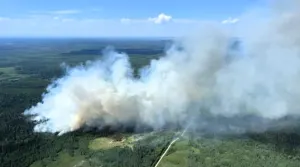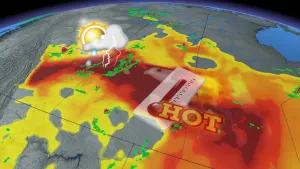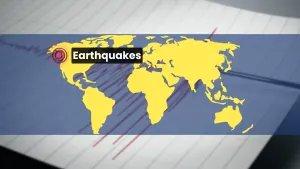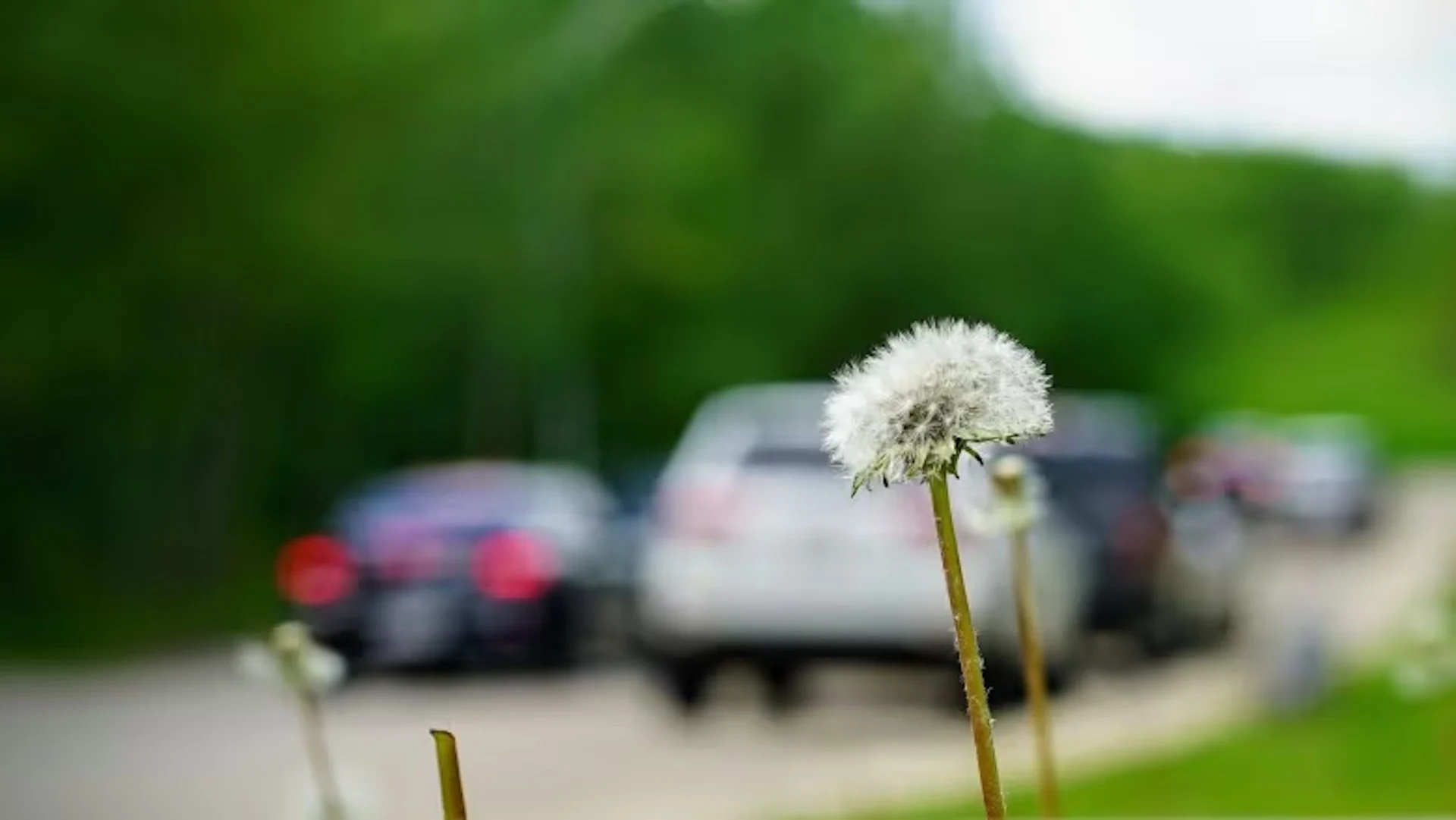
Seasonal allergies seem worse this year. Experts explain why it may feel like it
It's that time of year again — seasonal allergies are back.
With allergy season arriving earlier than usual — starting around March — many seasonal allergy sufferers feel their symptoms have been worse than ever. While experts said this isn't necessarily the case, a changing climate and weather conditions are intensifying the effects on our immune systems.
"It seems this time of year there's always a lot of complaints about allergies, and it really will depend on the year, the weather we're having," said Randy Howden, pharmacist and owner of Crowfoot Medicine Shoppe Pharmacy.
SEE ALSO: Is the weather fully to blame for your migraine?
Howden said there are no real measures for comparing how bad allergy season is each year, but certain years have more pollen and poplar tree fluff compared to others, amplifying allergy symptoms.
"It's really hard to say why it'll be harder year-to-year for some people," he said. "It really depends on what they're actually allergic to."
Whereas tree pollen is more common in the spring, grass and weed pollens become an issue in the summer and autumn, according to IQAir, an air quality technology company.

Randy Howden is a pharmacist and owner of Crowfoot Medicine Shoppe Pharmacy in Calgary. Although there is no cure for seasonal allergies, Howden says there are several ways to treat them. (Kelsea Arnett/CBC)
According to Asthma Canada, one in five Canadians suffers from respiratory allergies each year. Researchers from John Hopkins University School of Medicine in Baltimore found that over 30 per cent of the world's population reports suffering from seasonal allergies.
Howden said changing weather conditions — such as the shifts between wet and dry periods Calgary has seen lately — can aggravate seasonal allergies as pollen and other irritants are stirred up.
"Depending on the weather cycle, we'll get a bunch of wet weather and then we'll get a few warm days, and it almost seems like all the pollen is released all at once," said Howden.
He noted rain usually reduces pollen while heat worsens it.
More than local weather conditions
Globally, climate change and warmer global temperatures are also factors, said Cecilia Sierra-Heredia, an adjunct professor in the School of Population and Public Health at the University of British Columbia.
"Climate change and allergies are linked through the increasing greenhouse gases that cause changes in the environment and cause changes in how plants respond and produce pollen grains," she said.
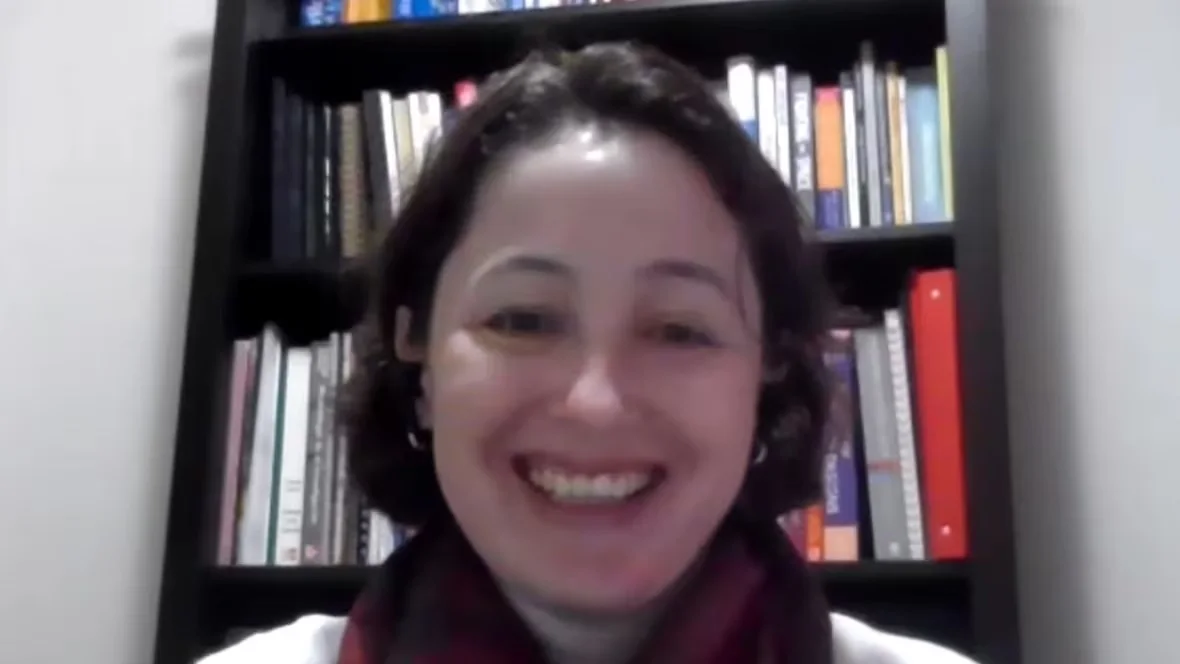
Cecilia Sierra-Heredia is an adjunct professor at the University of British Columbia who studies the connection between allergies and climate change. (Kelsea Arnett/CBC)
Sierra-Heredia noted the pollen season starts earlier and ends later than it used to due to warmer global temperatures. The Climate Atlas of Canada refers to this period as the "frost-free" season, or the length of the growing season, where temperatures remain above freezing.
The longer the frost-free season lasts, the more pollen can circulate in the air. Sierra-Heredia said this extended exposure can also prolong allergy symptoms.
"We have this exposure to pollen grains, to these proteins, and our immune system is reacting for a longer period of time throughout the year," she said.
Using data from the Pacific Climate Impacts Consortium, the Climate Atlas develops interactive climate change projections, allowing people to view the past and future effects of climate change in high and low-carbon scenarios.
Their data shows the frost-free season in Calgary was an average of nearly 85 days, or about three months, from 1976 to 2005. Since then, it has steadily risen. If carbon emissions do not decrease, the pollen season could last an average of 114 days, or four months, leading into 2050.

(Getty Images)
Sierra-Heredia said other air pollutants, like wildfire smoke, can also irritate our lungs.
So far this year, wildfire smoke has not been as stifling, with IQAir reporting Thursday the number of fine particles in the air was four micrograms per cubic metre of air. Last May, that number was at 558 micrograms.
Finding relief
While there is no cure for seasonal allergies, Howden said there are a number of ways to treat them, ranging from over-the-counter allergy medicines to prescription eye drops and nasal sprays.
More recently, he said, allergists have started offering allergy shots to people with severe symptoms. This type of immunotherapy — where patients receive small doses of the allergens they react to — typically requires multiple injections over the course of weeks or months to build up immunity.
Sierra-Heredia said indoor air purifiers can also help. She advises changing clothing or showering after being outdoors for long periods of time.
Howden said above all it's important to be proactive when addressing seasonal allergies.
"I think the biggest problem is people don't properly treat their allergies. They try to suffer through," he said. "Making sure that we do treat them proactively and appropriately is probably the best option."
WATCH: Is it allergies or a cold? These are the key differences
Thumbnail courtesy of CBC/Radio-Canada.
The story was originally written by Kelsea Arnett and published for CBC News.






